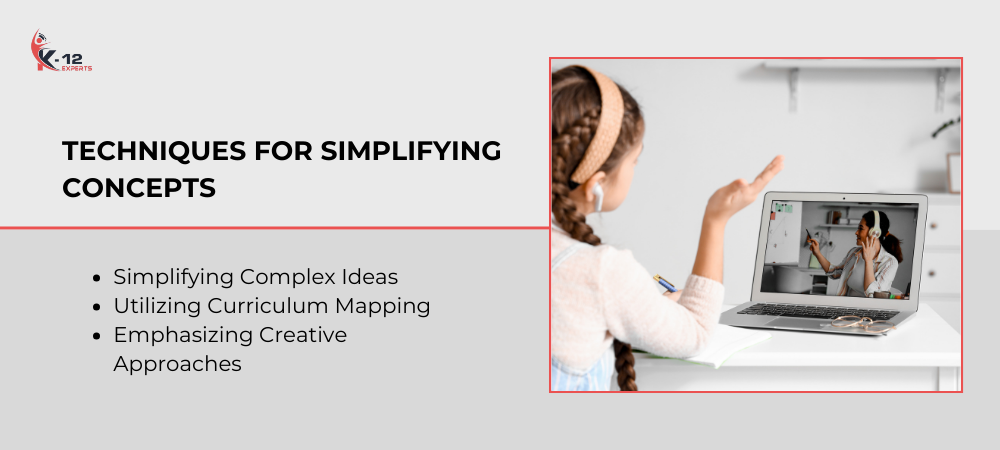Feeling overwhelmed by difficult subjects? Don’t worry, you’re not the only one.
This guide shows how tutors can transform those scary heights into small, easy-to-climb hills.
It’ll teach you creative ways to spot and overcome learning hurdles, break down complicated ideas, and get the most out of your tutoring sessions.
So, get ready, and let’s tackle these scholarly challenges together!
Understanding the Role of Tutors

A tutor’s job in your educational path isn’t just about giving you solutions. Instead, they’re there to help you get a handle on difficult topics in a way that resonates with you. They play a critical role in helping you deeply understand the subject matter and encouraging self-thinking. They simplify complicated concepts, making them easier to digest.
Yet, it’s important to remember that a tutor’s role also includes ethical considerations. They’re charged with setting up a safe and respectful space for learning, where you feel at ease asking doubts. They should encourage honesty in your academic journey, helping you understand your assignments rather than doing them for you.
In essence, a tutor’s job is to equip you with knowledge, not just to dole out information.
Identifying Learning Obstacles

During your educational journey, you’re bound to hit some bumps. Whether you’re grappling with a tricky math problem or wrestling with a complicated philosophical idea, these issues can slow down your academic growth.
But, fear not! There are strategies specifically made to help you overcome these challenges. The first step is to pinpoint what’s holding you back – maybe you’re struggling to understand, lacking some basic skills, or your study technique isn’t working.
Once you’ve identified the issue, you can then use adaptive learning styles. These are flexible methods that adapt to how you learn, letting you tackle tough concepts at your own speed.
Always remember, that every hurdle is a chance to think outside the box, learn something new, and grow.
Techniques for Simplifying Concepts

Transforming intricate ideas into simpler forms can be a game-changer. Imagine likening the body’s blood circulation to a city’s water system – it makes understanding easier, right?
Another handy tool is curriculum mapping, which is like using a map to explore a new city. It lets you see the bigger picture and connect the dots between individual subjects, fostering a complete understanding.
The bottom line? Creative approaches can make even the trickiest subjects easier to digest.
Case Studies: Tutors in Action

Let’s dive into a few real-world instances where tutors have successfully managed tricky subjects.
Firstly, we have a case where a tutor made calculus more approachable by linking abstract ideas to everyday examples. This not only kept the student interested but also enhanced their understanding.
In another instance, a tutor adjusted their teaching methods to suit a student’s unique learning style, helping them understand complex chemistry concepts.
These examples underscore how specific techniques can significantly influence learning. By comprehending these methods, you’ll see the vast possibilities in any tutoring session.
Coming up next, we’ll discuss how to make the most of your tutoring sessions to boost your learning journey.
Maximizing Tutoring Sessions

To get the most out of your tutoring sessions, it’s essential to be active and receptive to new ways of learning.
Start by preparing for each session – look over the topics in advance so you can identify areas you’re struggling with and bring them up with your tutor.
Remember, every tutor has a unique approach, they may use visual aids, real-life examples, or break down complex ideas to help you grasp them better.
The aim isn’t to achieve perfection, but to make steady progress.
Frequently Asked Questions
What Are the Qualifications Necessary to Become a Tutor?
To become a tutor, a sound educational foundation, typically a degree, in your preferred area is vital. It’s also important to be well-versed in the ethics of tutoring. Moreover, a good tutor must have the business acumen to manage a tutoring business effectively. Lastly, the ability to communicate clearly and patiently is a must.
How Can Technology Be Integrated Into Tutoring Sessions?
Utilizing virtual reality apps and gamification strategies is a great way to weave technology into your tutoring sessions. They inject a dose of interactivity, engagement, and enjoyment into the learning process, thereby elevating the overall tutoring experience.
How Does One-On-One Tutoring Compare to Group Tutoring in Terms of Effectiveness?
When you compare individual tutoring to group sessions, the former often comes out on top. This is due to the custom teaching methods and the flexibility to match your speed of learning. It’s essentially a more tailored approach to your unique learning style and rhythm.
Are There Any Specific Online Resources or Tools Recommended for Tutors?
Good news! Online platforms such as Khan Academy and Coursera are great tools for tutors. They provide interactive online activities that can enhance your teaching techniques, simplifying complex ideas for students.
How Do Tutors Handle Students With Learning Disabilities?
As a tutor, you’ll be adapting your methods and using suitable resources to assist students who have learning disabilities. By customizing your techniques to their unique requirements, you ensure they understand even the most challenging topics.
Conclusion
Navigating through tricky subjects might seem tough, but a good tutor can make it manageable. They’re pros at spotting the tough bits and making them simpler, aiding you in maximizing your study potential.
Remember, even the toughest topics can be made easier when divided into smaller chunks. Make the most of your tutoring time- it’s your ace in the hole to ace difficult subjects. Don’t sweat about diagrams and charts; they’re just aids to enhance your understanding.
Keep on with your studies, continue to evolve, and you’ll overcome any hurdles.




